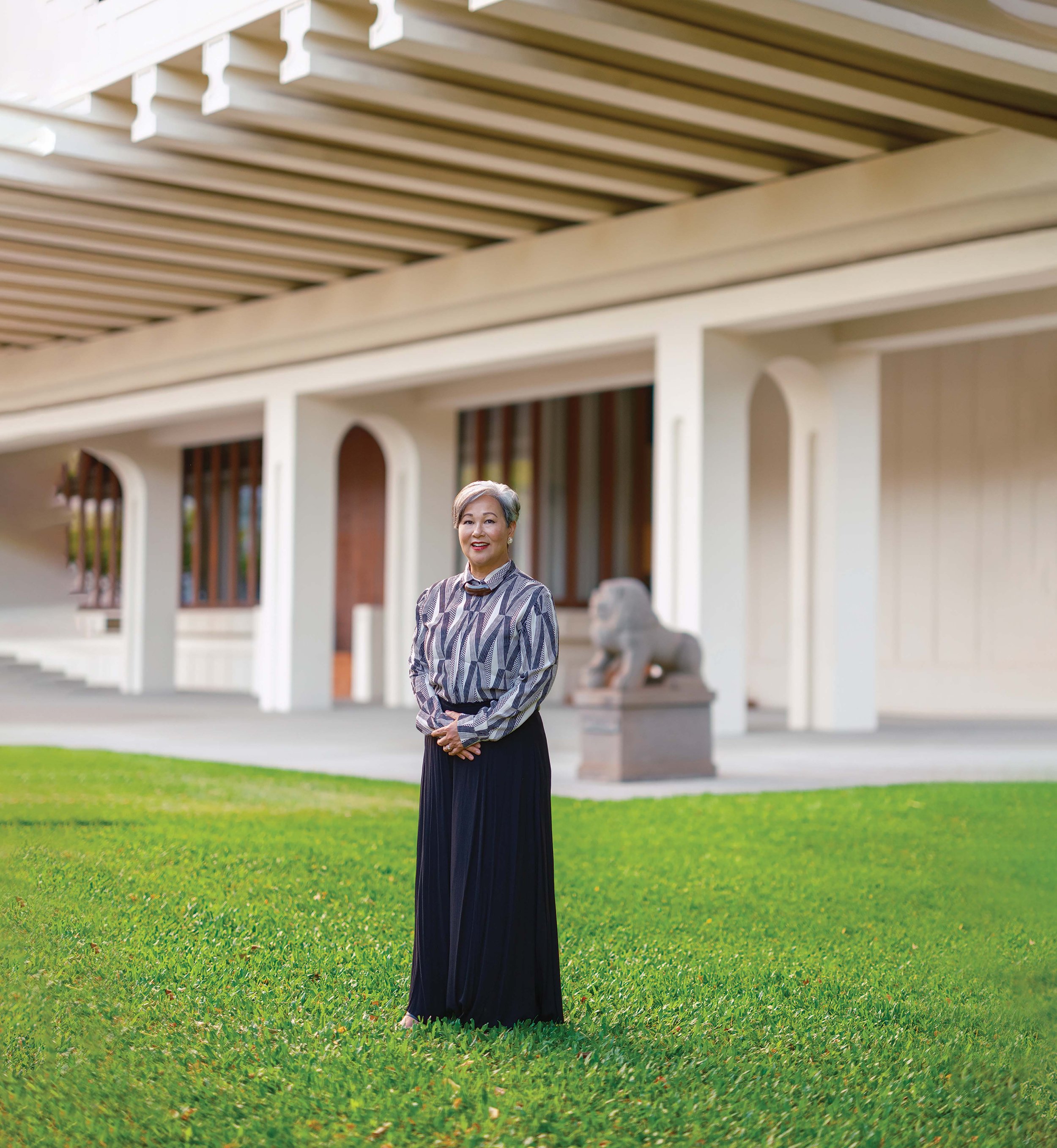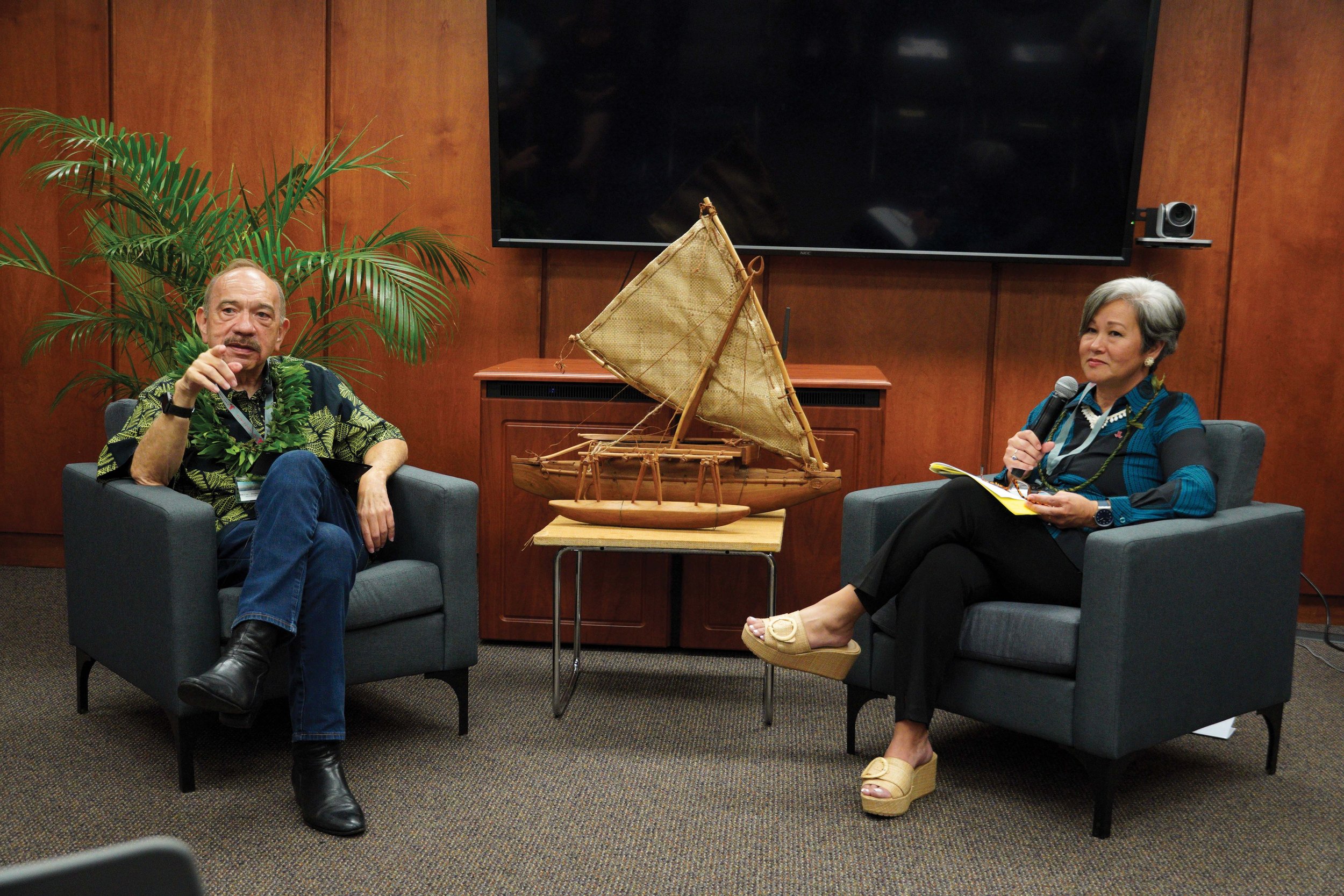Pacific Powerhouse





Years ago, a young Suzanne Vares-Lum walked the sun-dappled paths of University of Hawai‘i at Manoa, her backpack filled with journalism textbooks and her mind with dreams of making a difference. Little did she know that one day, she would return to this very place, no longer as a bright-eyed student, but as a trailblazing leader.
Vares-Lum is now the president of the East-West Center, an internationally recognized education and research organization located on the university’s grounds. As the first Native Hawaiian and female president in its 60-year history, her appointment showcases the Center’s commitment to cultivating change and developing local talent for global impact.
“Our No. 1 pillar is to develop and equip leaders,” she explains. “We do that through long-term graduate programs, where students at the University of Hawai‘i earn their masters or PhDs. We currently have students from 44 nations living in our dorms on our 21-acre campus. Last year, we had the largest number of incoming students, so that was wonderful.”
Founded in 1960 by the U.S. Congress, the East-West Center was established to promote better relations and understanding among the people and nations of the United States, Asia and the Pacific. Under Vares-Lum’s leadership, this mission has taken on renewed vigor and relevance in today’s political climate.
Vares-Lum, known to most as Suzy, outlines the five pillars guiding their strategy: developing leaders, convening impactful dialogues, partnering with the Pacific, fostering environmental solutions, and supporting good governance.
Under her guidance, the Center has stepped up its role in addressing pressing global issues, from climate change resilience in the Pacific to encouraging budding journalists in an era of misinformation.
As a woman in a leadership position, Vares-Lum is acutely aware of the importance of representation and emphasizes a need for inclusivity in governance.
“Good governance means that whole of society is included, and so often women are not included in that space. I think it’s important that this is part of one of our pillars, investing in women, because it really has to do with security, stability and prosperity. It’s within our interest to invest in all of society.
“In every country I visit, I tell them that the ones that tap into the talent of women thrive,” she adds.
She has prioritized supporting women’s leadership programs at the Center, including the Changing Faces Women’s Leadership Seminar, a development program for business and social entrepreneurs in the Asia-Pacific region. The most recent cohort included women from Cambodia, Mongolia, China, New Zealand, Australia, Pakistan, India, the U.S. mainland and Hawai‘i.
“These women got to learn from one another, learn from Hawai‘i, learn about leadership, learn about how important their role is in growing economic development in their countries, and how they can expand that network,” she says. “They can go back and take Hawai‘i with them; not just the practical things, but the special place of Hawai‘i and how we build community.”
The Center’s impact is evidently felt far beyond Hawai‘i’s shores. Its alumni network, now 70,000 strong, includes heads of state, diplomats, and influential leaders across various sectors.
“We have (these numbers), but the impact really comes from the stories of the people who tell me that they came here on a visa and went home and made a difference. They made change for the better, whether it’s researchers, academics, government leaders, bankers or entrepreneurs,” Vares-Lum explains.
“What they also tell me is that they have friends from all around the world ... not to mention the ones who got married after meeting here.
“These are people committed to the belief that one individual can make change in their community, can change the world and can impact others. We are making an impact in this small place called Hawai‘i, known around the world because of the experiences that these people had at the East-West Center since 1960. That’s huge.”
For Vares-Lum, leading the East-West Center is more than just a job — it’s a calling. As she continues to break barriers and forge new paths, she stands as an inspiration to the masses, but perhaps most especially to wahine here in Hawai‘i.
She concludes with a message of encouragement: “To our women and girls here in Hawai‘i, you’ve got the world. It’s possible. Don’t listen to those voices that tell you that you can’t. Here, we have freedom, we have openness, we have opportunity. Here, somebody like me can be in this job. Somebody like me could do things that in many places around the world isn’t possible because freedom is contested, it makes it harder, but they still do it, and that should inspire us all.”
